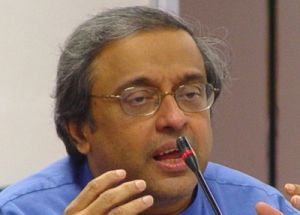The role of Islam in state and society: the choice before us
Dr Chandra Muzaffar
In the last few weeks, letters in the media by various groups and individuals have once again brought to the fore the critical question of the role of Islam in state and society.
For the Group of 25 (The Star, December 8 2014) Islamic law has to operate within the ambit of the Federal Constitution. The Constitution is the supreme law of the land. The group argues that “religious bodies seem to be asserting authority beyond their jurisdiction; where issuance of various fatwa violate the Federal Constitution and breach the democratic and consultative process of shura…” The ensuing injustices demand that a consultative process be established which “will bring together experts in various fields, including Islamic and Constitutional laws, and those affected by the application of Islamic laws in adverse ways.” G25 would like the Prime Minister, given his authority and resources, “to lead this consultative process.”
The Group of 31 (The Star, December 17 2014) on the other hand wants Islamic law to be given its rightful place in Muslim majority Malaysia. It is therefore proposing that the Government set up “a high-powered committee to review our Federal Constitution and to recommend amendments to incorporate the needs of the Muslims and entrench the rights of minorities.” The committee should “consist of Muslim and non-Muslim experts on Constitutional law, Islamic law and other relevant fields.” It should also “address weaknesses in the current truncated Syariah judicial system and make recommendations to overcome them.”
Since the G25 proposal requires the Prime Minister to act, a lot depends upon his response. All of us should persuade him to helm the consultative process suggested by the G25. If he is reluctant to do so, there is yet another avenue open to the citizenry. This is the Conference of the Malay Rulers. After all, our Constitutional Rulers are the heads of Islam in their respective states. It would be appropriate therefore to address our appeal to them. The Conference of Rulers as an entity should be encouraged to establish a committee to conduct a comprehensive study of:-
1) The areas of convergence and divergence between common law and Islamic law.
2) Juristic rulings by our religious authorities and the extent to which they conform to the essence and substance of Islam. Some of the current issues that come to mind include the custody of children when one of the parents has embraced Islam as well as the status of Shias within the Muslim Ummah in Malaysia.
3) Some possible solutions to both controversies within the Muslim community and problems between Muslims and non-Muslims with the view of enhancing intra and inter-religious harmony in Malaysian society.
This idea of a committee of experts from common law and Islamic law backgrounds under the Conference of Rulers may also be able to address some of the concerns of G31. But if the group’s only goal is to ensure the supremacy of Islamic law, it may not be comfortable with the rational, evaluative approach to both systems which the committee will have to adopt in order to produce just solutions. A rational approach will raise a couple of important questions.
One, if Islam is understood in terms of fundamental principles and values of governance, what is un-Islamic about the present Federal Constitution? It emphasizes the rule of law; it recognizes the equality of all citizens before the law; it protects the rights and the legitimate interests of all communities; it upholds the freedom of religion; it enshrines individual liberties; it embodies the separation of powers among the legislative, executive and judicial arms of the state; it provides for the independence of the judiciary; and it allows the people to elect their leaders. That these are Islamic values and principles will only occur to those who appreciate the essence and substance of the faith.
Two, is the Malaysian Constitution un-Islamic because it does not explicitly declare that the nation is founded upon the Quran and Sunnah or that the Syariah is the law of the land or that hudud is its penal code? Nations that have made such explicit declarations invariably privilege a religious elite over the rest of society — a religious elite which interprets Islam according to its own literal understanding of text and tradition and often delegitimizes other perspectives on the religion. This leads to religious authoritarianism that is reflected in the way in which moral injunctions are interpreted and enforced. It explains why Islamic states that are at different ends of the political spectrum such as Saudi Arabia and Iran are both authoritarian in the religious sense. In most of these Syariah based societies women are subordinated in practice and non-Muslim minorities, regarded as dhimmis (protected persons), are often restricted in their public roles. It is partly because the majority of Muslims in Tunisia and Egypt sensed that negative changes of this sort were in the offing under their elected Islamic leaders that they revolted against them through the ballot-box in one instance and via street demonstrations, in the other. Given these recent and current experiences, do we in Malaysia want to strengthen Islamic law simply because of an attachment to dogma?
Our choice is clear. We must re-affirm our commitment to our Constitution. This means endorsing the essential features of a document that by and large has served our nation well for the last 57 years. In ethnic relations in particular, it articulates a just balance among the different communities guided by the historical evolution of the nation and contemporary realities. Perhaps non-partisan individuals and organizations should join hands and demand that candidates in the next general election publicly express their wholehearted support for the Federal Constitution.
Dr. Chandra Muzaffar is Chairman of the Board of Trustees, Yayasan 1 Malaysia


